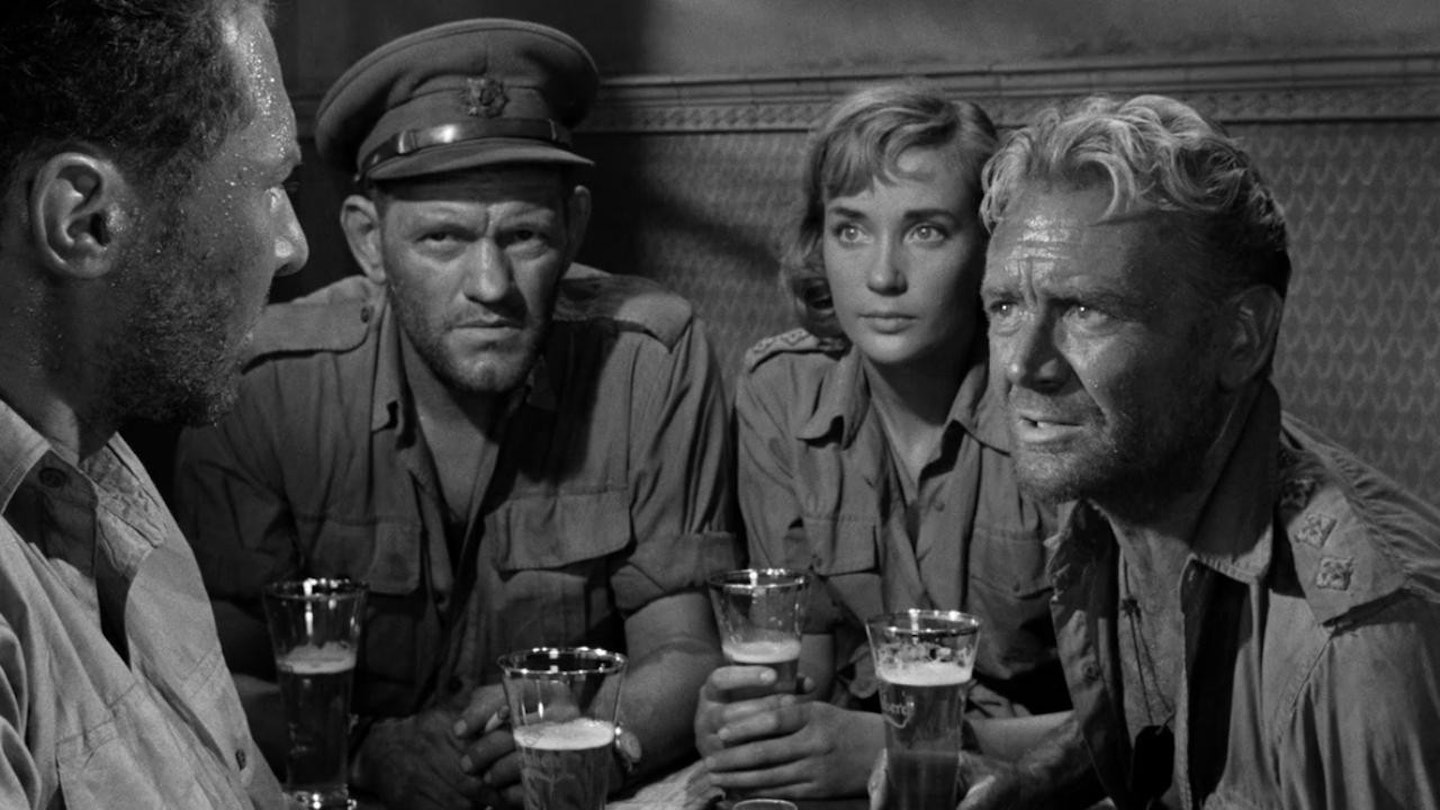More a study of the endurance of British manners in the face of terrible hardships than a war movie. For all its desert backdrops, the physical strains of hulking an ambulance across the slipping sands, this is a rather theatrical piece. Based on Christopher Landon’s novel, who also wrote the body of the script, his notion was to watch how characters unravel, or not, especially British ones under terrible extremes.
Each of his stock set of characters will come to expose their souls, dally in mild but not too overbearing forms of madness, and rise a better person for it, as driven by John Mills’ Captain’s dream of reaching an ice cold beer in Alex — since purloined, to the film’s detriment, for advertising.
Inevitably, being so defined by the seesaw between talky nationalistic debates and the hard graft of desert survival — a sequence where they physically wind the ambulance up a steep incline only for it to tumble back, has a powerful Sisyphean torment — the film becomes predictable and rather stagy. A strong subplot involving the presence of a German spy in their midst, not exactly presented as a mystery but effective nonetheless, adds variation, but there is no escaping the overall stiffness in the filmmaking.
It takes a great set of performances, as unflaggingly British as John Bull and whelk stalls, but there is psychological enquiry in Anson’s incipient alcoholism, Pugh’s ingrained bigotry and the more sympathetic portrayal of the German cause in Quayle’s eloquent performance, to lift it. Thus, it is a story of recovery, of ordinary men reaching their lowest ebb and seeing it through. There is cliché in that, especially with its doubty, old-fashioned manner, but value as well.
